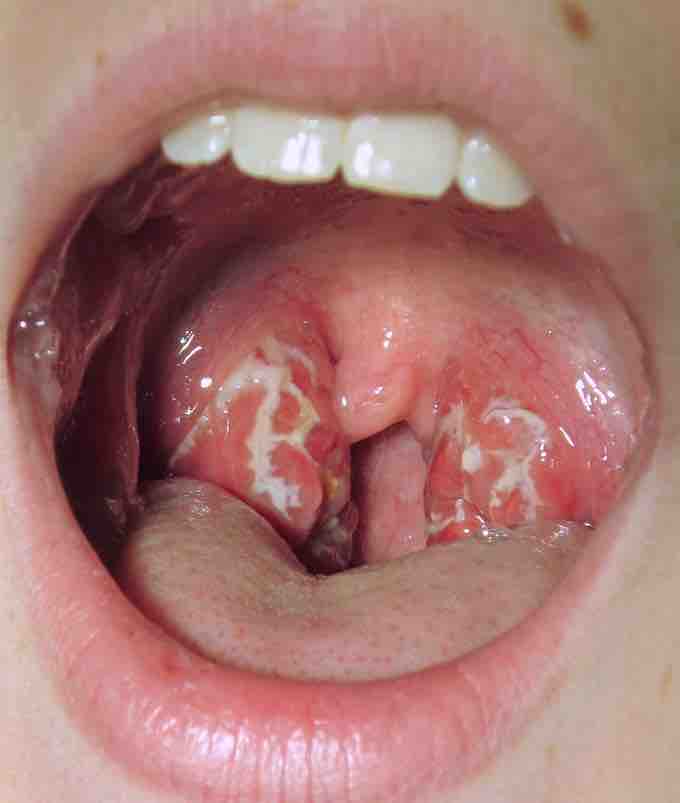Pharyngitis
Pharyngitis is an inflammation of the throat. In most cases, it is quite painful and is the most common cause of a sore throat. Like many types of inflammation, pharyngitis can be acute or chronic. Acute cases are characterized by a rapid onset and, typically, a relatively short course of inflammation. Pharyngitis can result in very large tonsils. This can make swallowing and breathing difficult. It can be accompanied by a cough or fever, for example, if it is caused by a systemic infection. Most acute cases are caused by viral infections (40–80%). The remainder are caused by bacterial infections, fungal infections, or irritants such as pollutants or chemical substances. The treatment of viral causes is mainly symptomatic. Bacterial or fungal causes are often amenable to antibiotics and anti-fungal treatments, respectively.
Bacterial Causes of Pharyngitis
A number of different bacteria can infect the human throat. The most common is Group A streptococcus, but others include Corynebacterium diphtheriae, Neisseria gonorrhoeae, Chlamydophila pneumoniae, and Mycoplasma pneumoniae.
Streptococcal pharyngitis, more commonly known as strep throat, is caused by group A beta-hemolytic streptococcus (GAS). This is the most common bacterial cause of pharyngitis (15–30%). Common symptoms of strep throat include fever, sore throat, and large lymph nodes . It is a contagious infection, spread by close contact with an infected individual. A throat culture is the gold standard for the diagnosis of streptococcal pharyngitis, with a sensitivity of 90–95%. A rapid strep test (also called rapid antigen detection testing, or RADT) is also occasionally used as a diagnostic. While the rapid strep test is quicker, it has a lower sensitivity (70%) and a statistically equal specificity (98%) as a throat culture. For step throat, antibiotics are useful in preventing complications and expediting recovery.

Streptococcal pharyngitis
A severe case of strep throat or Streptococcal pharyngitis.
Fusobacterium necrophorum are normal inhabitants of the oropharyngeal flora. Occasionally, however, these bacteria can create a peritonsillar abscess. In 1 out of 400 untreated cases, Lemierre's syndrome can occur as a result of these abscesses.
Diphtheria is a potentially life threatening upper respiratory infection caused by Corynebacterium diphtheriae. As a result of childhood vaccination programs, diphtheria has has been largely eradicated in developed nations, but it is still reported in the Third World, and, increasingly, in some areas in Eastern Europe. Antibiotics are effective in the early stages, but recovery is generally slow.